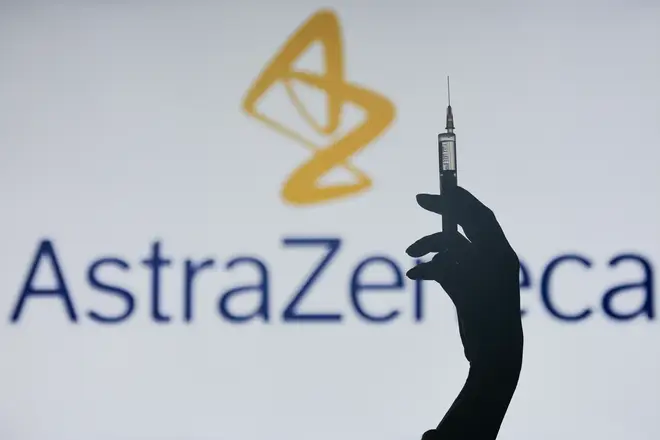
Ben Kentish 10pm - 1am
5 February 2021, 13:09 | Updated: 5 February 2021, 14:33

The AstraZeneca vaccine is effective against the UK Covid variant first identified in Kent, University of Oxford researchers have said.
Scientists found the Oxford-AstraZeneca vaccine is just as good at fighting the UK Covid-19 variant as it is the original strain of the virus.
Researchers took swabs from both symptomatic and asymptomatic volunteers between enrolled in phase two/three vaccine studies to work out which virus strain they had been infected with after receiving a vaccine or a placebo.
Read more: Deal reached for 50 million doses of vaccines that target new variants
Read more: Quarantine hotels to come into force from 15 February
Results show the vaccine's strength against symptomatic infection was similar to the original strain of the virus - despite a lower count of neutralising antibodies.
Andrew Pollard, professor of paediatric infection and immunity, and chief investigator on the Oxford vaccine trial, said: "Data from our trials of the ChAdOx1 (AstraZeneca) vaccine in the United Kingdom indicate that the vaccine not only protects against the original pandemic virus, but also protects against the novel variant, B.1.1.7, which caused the surge in disease from the end of 2020 across the UK."

Professor involved in vaccine mixing trial speaks to LBC
The study reports that vaccine efficacy against symptomatic positive infection was similar for B117 and non-B117 lineages, at 74.6% and 84% respectively.
Vaccine researchers have already spent weeks looking at how to modify existing vaccines to protect against mutations, but this is the first time the efficacy of the Oxford-AstraZeneca jab against new variants has been revealed.
Sarah Gilbert, professor of vaccinology, and chief investigator on the Oxford vaccine trial, said: "All viruses accumulate mutations over time, and for influenza vaccines there is a well-known process of global viral surveillance, and selection of strains for an annual update of the vaccines."
Explained: Who pays for hotel quarantine? How much will it cost?
Professor Gilbert said that coronaviruses are less prone to mutation than influenza viruses.
She added: "But we have always expected that as the pandemic continues, new variants will begin to become dominant amongst the viruses that are circulating and that eventually a new version of the vaccine, with an updated spike protein, would be required to maintain vaccine efficacy at the highest level possible.
"We are working with AstraZeneca to optimise the pipeline required for a strain change should one become necessary.
"This is the same issue that is faced by all of the vaccine developers, and we will continue to monitor the emergence of new variants that arise in readiness for a future strain change."

Travel agent condemns "half-baked" hotel quarantine scheme
The suggestion that some variants could prove some vaccines ineffective has sparked fears among scientists and ministers alike, with new travel rules coming into force from February 15.
Travellers arriving in the UK from countries on a "red list" will be made to quarantine in a Government-approved hotel for 10 days to ensure there is no spread of the variant originating from South Africa or Brazil.
Read more: Minister 'doesn't know' if passports will be stamped to avoid quarantine cheating
Scientists are also looking at combinations of two-dose vaccinations to combat mutations, with the Oxford and Cambridge universities, AstraZeneca, Pfizer and others joining forces.
Over 100 cases of the South Africa variant have been identified in the UK so far, with it spreading to at least 20 other countries.